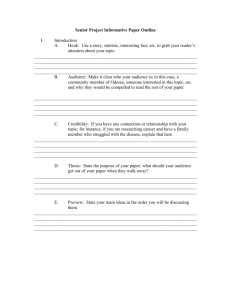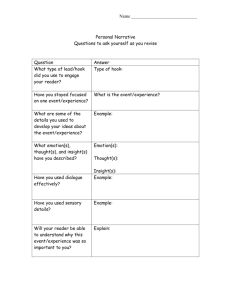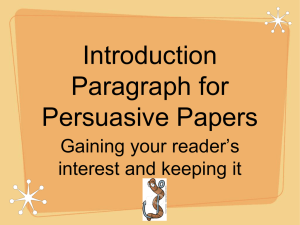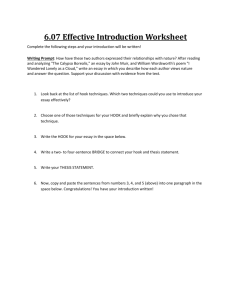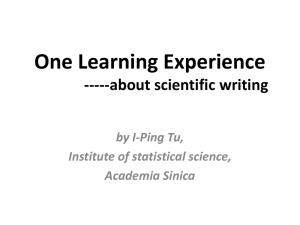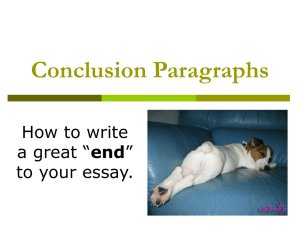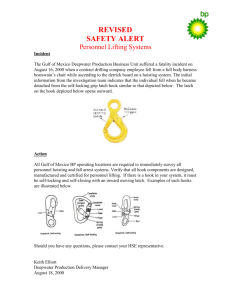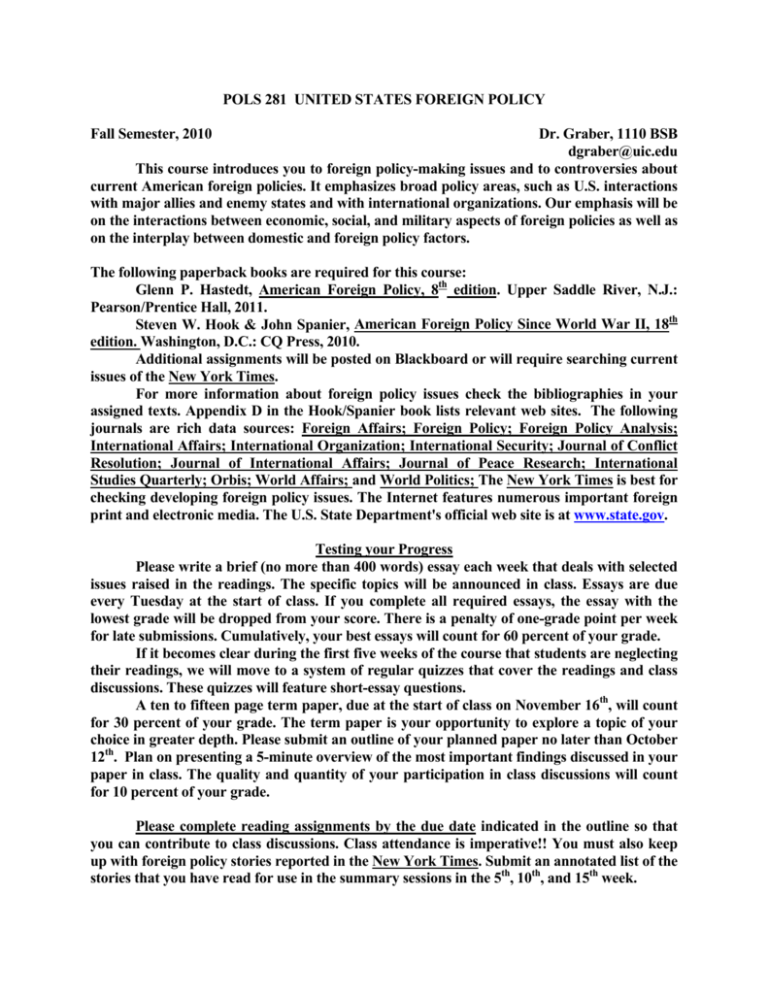
POLS 281 UNITED STATES FOREIGN POLICY
Fall Semester, 2010
Dr. Graber, 1110 BSB
dgraber@uic.edu
This course introduces you to foreign policy-making issues and to controversies about
current American foreign policies. It emphasizes broad policy areas, such as U.S. interactions
with major allies and enemy states and with international organizations. Our emphasis will be
on the interactions between economic, social, and military aspects of foreign policies as well as
on the interplay between domestic and foreign policy factors.
The following paperback books are required for this course:
Glenn P. Hastedt, American Foreign Policy, 8th edition. Upper Saddle River, N.J.:
Pearson/Prentice Hall, 2011.
Steven W. Hook & John Spanier, American Foreign Policy Since World War II, 18th
edition. Washington, D.C.: CQ Press, 2010.
Additional assignments will be posted on Blackboard or will require searching current
issues of the New York Times.
For more information about foreign policy issues check the bibliographies in your
assigned texts. Appendix D in the Hook/Spanier book lists relevant web sites. The following
journals are rich data sources: Foreign Affairs; Foreign Policy; Foreign Policy Analysis;
International Affairs; International Organization; International Security; Journal of Conflict
Resolution; Journal of International Affairs; Journal of Peace Research; International
Studies Quarterly; Orbis; World Affairs; and World Politics; The New York Times is best for
checking developing foreign policy issues. The Internet features numerous important foreign
print and electronic media. The U.S. State Department's official web site is at www.state.gov.
Testing your Progress
Please write a brief (no more than 400 words) essay each week that deals with selected
issues raised in the readings. The specific topics will be announced in class. Essays are due
every Tuesday at the start of class. If you complete all required essays, the essay with the
lowest grade will be dropped from your score. There is a penalty of one-grade point per week
for late submissions. Cumulatively, your best essays will count for 60 percent of your grade.
If it becomes clear during the first five weeks of the course that students are neglecting
their readings, we will move to a system of regular quizzes that cover the readings and class
discussions. These quizzes will feature short-essay questions.
A ten to fifteen page term paper, due at the start of class on November 16th, will count
for 30 percent of your grade. The term paper is your opportunity to explore a topic of your
choice in greater depth. Please submit an outline of your planned paper no later than October
12th. Plan on presenting a 5-minute overview of the most important findings discussed in your
paper in class. The quality and quantity of your participation in class discussions will count
for 10 percent of your grade.
Please complete reading assignments by the due date indicated in the outline so that
you can contribute to class discussions. Class attendance is imperative!! You must also keep
up with foreign policy stories reported in the New York Times. Submit an annotated list of the
stories that you have read for use in the summary sessions in the 5th, 10th, and 15th week.
Due Date
Tentative Time Schedule and Reading Assignments
Topics
Assignment Chapters
Aug. 26
1. Introduction: Problems in U.S. foreign policy;
Presidential foreign policy doctrines.
Hastedt: 1
Aug. 31
2. Foreign policy theories; Isolationism v.
Internationalism; Global obligations.
Hastedt: 2, 3
BB: Ray, 3
Sep. 7
3. From World War II to the Cold War & beyond;
The Vietnam War; North-South tensions.
Hook: 2, 3 ,4
Sep. 14
4. The impact of Superpower rivalries on global
politics; arms control; human rights.
Hook: 5, 6, 7
Sep. 21
5. Discussion of papers; linking readings & class
discussions to current foreign policy challenges.
New York Times
Reading Resumé
Sep. 28
6. How leaders make foreign policy decisions;
Redefining policy goals in the 21st century.
Hastedt: 4, 5
Hook: 1
Oct. 5
7. Major foreign policy actors: Congressional influence;
Presidential leadership; Bureaucracy hurdles.
Hastedt: 6, 7, 8
Oct. 12
8. How realistic are foreign policy models? Regional
crises in the Middle East, Africa, South Asia.
Hastedt: 9
Hook: 8, 9
Oct 19
9. The many facets of diplomacy; Terrorism,
Ethnic cleansing; the end of American hegemony.
Hasted: 10
Hook: 10, 11
Oct 26
10. Discussion of papers; linking readings & class
discussions to current foreign policy challenges.
New York Times
Reading Resumé
Nov. 2
11. Hot war in Iraq and Afghanistan; Nation Building;
Nuclear proliferation dangers in Iraq & N. Korea.
Hook: 12, 13
Nov. 9
12. Using economic power: Foreign trade & aid;
monetary policy; military resources in war & peace.
Hastedt: 11, 12, 13
Nov. 16
13. Foreign policy controversies
Presentation of individual papers.
Submit your paper +
BB paper summary
Nov. 23
14. Presentation of individual papers.
Hasted: 14; Hook 14
Nov. 30
15. Visions of the future; linking readings & class
discussions to current foreign policy challenges.
New York Times
Reading Résumé

